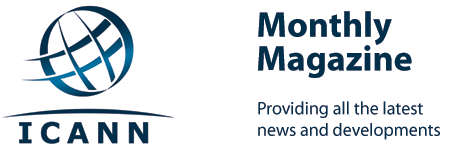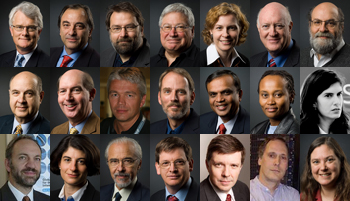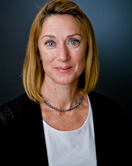August 2008: Monthly Magazine

Click here to return to the main magazine webpage
August 2008
In this issue:
- Board decisions and discussions
- Catch up with the latest policy developments
- Comment on the work ICANN is producing
- Multilingualism: the work already underway
- News from around the world, and more...
Welcome to the August issue of ICANN's magazine. Each issue covers the latest news and events, plus outlines how you can interact with the organization.
ICANN makes decisions that directly affect all those that use the Internet, whether governments, businesses or individual Net users.
We help coordinate the names and numbers that are vital to producing one globally interoperable Internet. Our decision-making processes are open to all and we welcome all those equally passionate about how the Internet evolves.
Links
Policy Update
Policy highlights this month include:
GNSO Improvements
A working group formed by the Board in Paris to offer a consensus recommendation on how the GNSO Council should be structured has reported back. Following a discussion at its most recent meeting, the Board then instructed ICANN Staff to perform an analysis of implementation issues presented in the report and report back to the Board in time for its meeting on 28 August.
Whois
A review group looking into a number Whois study recommendations is expected to conclude its work by the end of the month. It will then submit a list to the GNSO Council which will decide whether to go ahead with any of them, asking the staff to determine cost, feasibility, potential methodology, and estimated time frames for testing.
Fast Flux
An Initial Report on the issue of Fast Flux - where cybercriminals evade detection by rapidly modifying IP addresses and/or name servers – is being prepared following work by a GNSO Working Group and input by constituencies. It will then be put out to public comment and developed into a Final Report to be provided to the GNSO Council by 15 October.
ICANN's geographic regions
Staff is soliciting input from Supporting Organizations and Advisory Committees on whether the Board should appoint a community-wide working group to resolve issues relating to the current definition of the ICANN Geographic Regions. Input received will be summarized and provided to the Board for consideration.
To view more in-depth information on each of these issues plus:
- IDN ccTLDs
- ccNSO improvements
- Inter-Registrar Transfer Policy
- Domain name front running
- At Large involvement and elections
- Global policy proposals for ASNs and IPv4
- SSAC reports on DNSSEC and Phishing
Please review the August Policy Update.
ICANN Board

Recent Board meetings
The Board met most recently on 31 July. The next meeting is on 28 August.
Each Board meeting is preceded by at least a week by a meeting of the Board’s Executive Committee which decides the agenda. The preliminary report of the Executive Committee for the 31 July meeting is online.
A preliminary report of the 31 July meeting itself can be found on the Board minutes page. Highlights include:
- An extensive discussion of the latest GNSO Improvements development (see also Policy section above)
- Approval of an ASN global policy
- New gTLD update
- Update on .aero and .post registry agreements
- Update on single-letter domains
- Response to UN request re: "enhanced cooperation" of Internet bodies
- Approval of Professor Jan Gruntorád as academic appointment to the Nominating Committee
- Approval of $1.6m budget for Mexico City meeting in March 2009
- Update on the Improving Institutional Confidence consultation
The agenda for the 28 August meeting is online on the Board minutes pages. It includes:
- President’s Monthly Report
- GNSO Council Restructuring
- NomCom recommendation for changing the bylaws re: criteria for Board member selection
- Redelegation of .MS (Montserrat)
- Ombudsman Budget
- Independent Reviews Status Report
- Board Committee Reports (Finance / Governance / Compensation)
- BGC recommendation for selection of the next Nominating Committee chair
- President’s Strategy Committee Report
You can view all past, current and future Board meetings, along with minutes and agenda on one webpage on the ICANN website at http://www.icann.org/minutes/.
Compliance
The August Contractual Compliance newsletter will be released shortly after publication of this newsletter. Highlights include:
UDRP questions
At the recent ICANN meeting in Paris, a workshop specifically on UDRP compliance by registrars was held. Following presentations from a number of distinguished speakers, a question and answer session was held, but time ran short, so ICANN's compliance team has taken five questions that were answered regarding the UDRP process and answered them.
Deaccredited registrars
Following the recent deaccreditation of two registrars - or, more accurately, the refusal of ICANN to renew their accreditation for reasons of non-compliance - the compliance team has compiled information on registrar deaccreditations over the past five years and presents them in a table.
Whois data accuracy update
ICANN engaged the National Opinion Research Center (NORC), one of the largest and most respected social research organizations in the United States, to develop a methodology that proposes the use of a random sample of the gTLD population to assess the percentage of certain Whois data accuracy.
Upcoming meeting
There is a registries and registrars meeting being held on 10 and 11 September in Seoul.
To view more in-depth information on compliance issues, please review the August Compliance newsletter.
Multilingualism in ICANN
As many of those in the community will hopefully be aware, over the course of the past year, ICANN has been working at introducing a translation programme that will ensure that all of its global stakeholders will be able to interact freely and easily with the organization.
While English remains the dominant language within ICANN's processes, staff is working hard to create systems to provide timely material in other languages, and to do so consistently and with a high degree of accuracy.
Having consulted extensively and widely and produced a programme, the first seeds of the programme are starting to sprout and in a few cases, the green leaves are showing.
Here are a few examples:
- All announcements, and many other pages, now have a language bar at the top that clearly demonstrates if translations are available and in what language.
- Tied in with that, each of the ten languages now has its own announcement page - for example the French announcement page is at: http://www.icann.org/fr/announcements/
- All translated documents are now placed under a two-letter language folder (see "/fr/" above), enabling the content to be aggregated and, in the near future, compiled into index pages.
- The Improving Institutional Confidence documents - and most of the supporting material surrounding them - have been made available in 10 languages: see here for the Chinese version: http://www.icann.org/zh/jpa/iic/
- A recent series of policy updates have been made available in six languages.
- The At Large website has expanded significantly to incorporate all material in one language in one place using a sophisticated content management system. See http://www.atlarge.icann.org/
- And many other examples.
More importantly, ICANN is starting to making translations of its documents a part of the system, so non-English speakers should, over the course of the next year, gain equitable access to information about ICANN and its processes.
ICANN is also actively seeking a Translator Coordinator to oversee that transformation to a multilingual organization, so if you know of anyone who is qualified, or of any networks of mailing lists where such a person is likely to visit, we would like to strongly encourage you to provide them with this link to the job description:
http://icann.org/en/general/jobs.htm#transcoord
Participation
Public comment
Every piece of substantive work that ICANN produces goes through at least one period of public comment, where anyone is free to provide their reflections, which will then be summarized and used to revise whatever documents are under review.
All of those comment periods are available on a single webpage on the ICANN website and all new comment periods are formally announced on the front page of the site.
As of Wednesday 27 August, there are three comment periods open. Three have open since the last magazine was published and they are:
- ALAC review final report. A review of possible changes to the supporting organization that represents Internet users. Closes 12 Sep.
- SSAC review terms of reference. The first stage in the review of the security and stability advisory committee. Closes 5 Sep.
- Auction for new gTLDs. A report that provides the economic case for using auctions to decide who should have a new generic top-level domain in the event of a dispute. Closes 7 Sep.
Still open:
- Board of Director's Code of Conduct. Closes 29 Aug.
Closed since last magazine:
- UDRP pilot project
- IDNC working group Final Report
- RAA proposed changes
- Single-character domains in .coop and .mobi [summary/analysis of comments]
Blog
A slow month on the blog this month - a combination of people being on holiday and a huge amount of work elsewhere (see the large number of announcements below).
Nonetheless, Leo Vegoda stuck up one slide of a larger presentation on his unending search for unused IPv4 address space - and then added links to the other research out there and presentations going on in this area. Leo will the first to acknowledge though that he is just buying time - a shift to IPv6 is the only way forward.
And secondly, a link to a fellow Internet organization's meeting. APNIC in Christchurch earlier this month. ICANN was holding one of several regional consultative meetings on Improving Institutional Confidence in ICANN at the meeting (thank you APNIC for slotting us in at short notice), and the blog post encouraged people to follow the session online using their remote participation tools.
More details on participating with ICANN can be found at: http://icann.org/participate/
Announcements
The following announcements were made in the past month:
Aug 08
22Aug: Hosts sought for Europe 2009 and Africa 2010 ICANN meetings
19 Aug: Fellows announced for Cairo
15 Aug: Regional consultative meetings on future of ICANN announced
14 Aug: Domains from deaccredited registrar DotForce are transferred
13 Aug:
SSAC review terms put out for comment
New travel policy released
6 Aug: DNS security problem
1 Aug: Thailand ccTLD signs up with ICANN
Jul 08
30 Jun: Compliance semi-annual report released
25 Jun : ALAC review final report released
A full list of announcements is available online at: http://www.icann.org/announcements/
What Does ICANN Do?
To reach another person on the Internet you have to type an address into your computer - a name or a number. That address has to be unique so computers know where to find each other. ICANN coordinates these unique identifiers across the world. Without that coordination we wouldn't have one global Internet.
ICANN was formed in 1998. It is a not-for-profit partnership of people from all over the world dedicated to keeping the Internet secure, stable and interoperable. It promotes competition and develops policy on the Internet’s unique identifiers.
ICANN doesn’t control content on the Internet. It cannot stop spam and it doesn’t deal with access to the Internet. But through its coordination role of the Internet’s naming system, it does have an important impact on the expansion and evolution of the Internet.
Interview with Janice Douma Lange, Project coordinator

Janice runs the ICANN Fellowship program - where those interested in attending ICANN meetings apply and, if successful, have their attendance costs covered. She explains how the program works and her hopes for its future.
So you have just announced who have been selected as fellows to the Cairo meeting....
Yes, we have a total of 30 fellows this time, with a slight emphasis on the host region - we have 10 from Africa.
What's the goal of the program?
To increase outreach and improve participation from the under-developed or developing countries, and to present them with updates on topics such as new gTLDs and IDNs which they can then take back to their communities.
Who are they and what is it about ICANN that interests them?
Well, there's a variety of people. About half are from government, about half from the country-code community and one or two from user groups or civil society. Apart from new gTLDs and IDNs, they are very interested in knowing more about IPv6 and DNSSEC and something which keeps coming up is ccTLD policies.
And how do they find out about them at ICANN meetings?
Well apart from, obviously, attending the meetings themselves and talking to people, we introduce them to key people in the community. In Paris for example, we have Janis [Karklins, GAC chair] and Chris [Disspain, ccNSO chair] come along and speak to them as a small group. ALAC came along. We had Avri [Doria, GNSO chair] in Delhi. And then we also introduce the hot topics and have experts in them. We have Ram Mohan [CTO, Afilias], and Tina Dam [IDN programme director] and John Crain [ICANN Chief Technical Officer]. Every morning of the meeting for an hour-and-a-half we have people come along and make presentations.
How many people applied to become fellows and how were the successful ones chosen?
We have 89 applicants for this round and we ended up with 30. There is an independent panel of five community members that comes from different countries, different backgrounds and have different perspective and they use the criteria which are published online to come up with the names.
In terms of numbers, that's decided according to the budget. We started with $100,000 per meeting; this year that's increased to $450,000 for the whole year. For that we have to have a minimum of 60 participants but I'm shooting for 80 for the year. It's more about quality than quantity but even so I want to try to up participation to all those that qualify.
And what does that cover?
An economy airfare, a hotel room, and a stipend to help with costs and things such as visas. The whole system is based on continued participation though - so after you are a fellow, you become an alumnus and become a part of wider outreach. The alumni help new arrivals understand the process, and to engage in the processes. So we are building a network of people interested in ICANN's work that can then spread that to their communities.
Thankyou
Thanks.
You can find out more about the Fellowship Program, including those chosen for Cairo, how to apply, the terms and conditions, previous fellows, and so on, on at the Fellows dedicated webpage.
